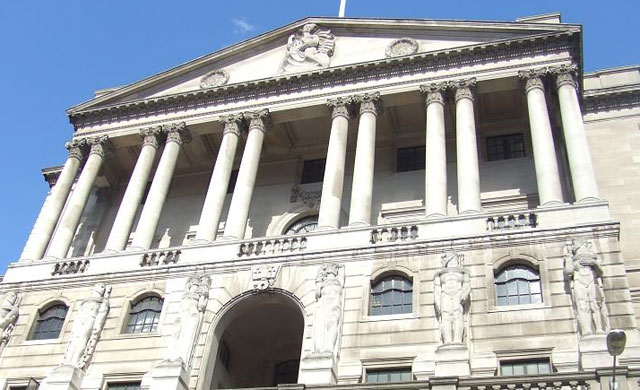The Bank of England’s Financial Policy Committee reported today that UK banks need an additional £25 billion in aggregate on reserve to guard against what Andrew Bailey called “inadequate provisions for losses on loans.” The committee wants the extra capital raised by December.

There is at least one small catch. The banks are going to have to raise the money on their own. There will be no additional taxpayer handouts. More than a few average tax-paying citizens should take comfort in knowing that their hard-earned money will not be be used to bail out financial institutions that, in effect, screwed them over in the first place.
The committee has set an immediate objective for the banks to attain a core tier one capital ration of a minimum of 7% of their risk-weighted assets. Not all UK banks are below the 7% objective, but the committee is not permitted to reveal the names of any of the institutions in sector-oriented reports.
It’s probably fair to say that those banks who need to meet the objective are suffering from frustration this morning, as their restructuring budgets may have just been torpedoed. There are really only two basic ways that the institutions can raised the necessary cash. They must either sell off additional assets or issue additional shares.
Assuming that the banks and building societies are already in the process of selling off assets, the new directive, at least for some, may mean either the sale of additional assets and/or speeding up the process of disposing of them. Given the fact that their strategic plans and budgets have already been defined, that means that the banks have already identified what assets they wish to shed and which they wish to keep. With the new objective assigned by the BoE, some of the banks are going to have to make some hard choices, i.e., selecting some assets that they had planned to keep. Nine months is, in terms of shedding assets profitably, not a long period of time.
As for issuing new shares, which is the quickest and, normally, the best way to raise funds, the banks will be reluctant to do so at this time, because their share prices are generally lower than where the banks would like them to be. Investors, if they are interested at all, would like to purchase shares at generally reduced prices, but the banks would look at an offering as a fire sale.
Bailey said, “We are not saying that those plans are absolutely baked in, and have been given a seal of approval. They will be scrutinized by the Prudential Regulation Authority (which he heads). But if you add the numbers up that is where you get to.”
Whilst some criticism has already been raised against the committee’s findings (big surprise), saying that it will make banks hold on to their money and, therefore reduce lending, Sir Mervyn King sagely observed that “Far from reducing lending, today’s recommendations will support lending and promote growth. A weak banking system does not expand lending. The better capitalized banks are the ones expanding lending, and it is the weaker capitalized banks that are contracting lending.”

 Hot Features
Hot Features













